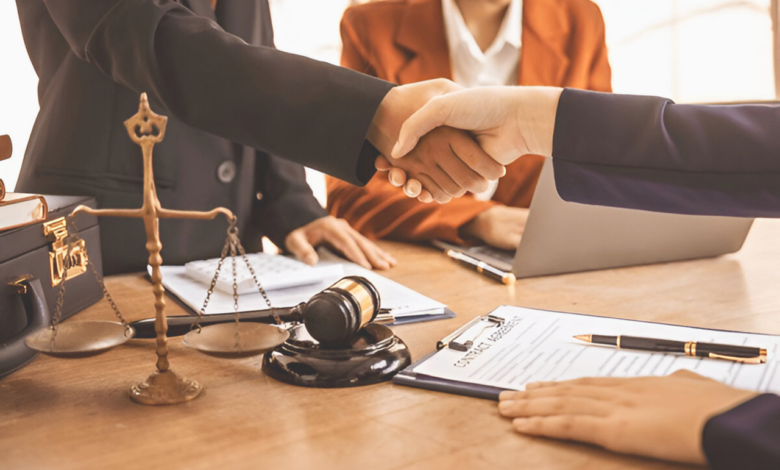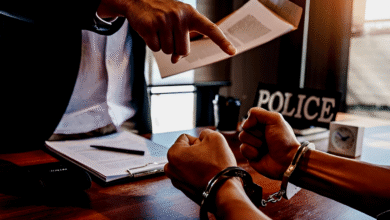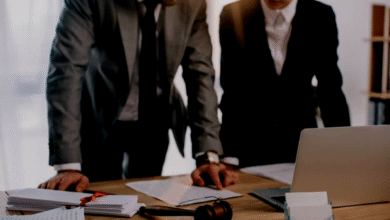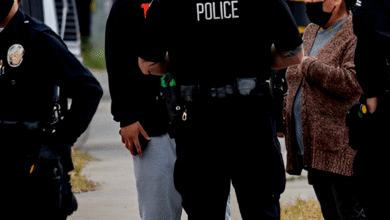Criminal Defense Essentials: What to Do if You’re Arrested in Georgia
Criminal defense essentials for Georgia arrests Know your rights, when to stay silent, and how to find the best legal defense immediately.

Facing an arrest in Georgia can be a terrifying and disorienting experience, but understanding criminal defense essentials can help protect your rights and future. Whether you’re detained for a minor offense or a serious felony, the actions you take immediately after an arrest can significantly impact your case. From knowing when to remain silent to securing legal representation, being informed is your first line of defense. Criminal Defense will walk you through the critical steps to take if you’re arrested, your legal rights under Georgia law, and how to navigate the criminal justice system effectively.
An arrest doesn’t have to mean the end of your freedom knowing criminal defense essentials empowers you to respond strategically. Police officers must follow strict procedures during an arrest, and any missteps could strengthen your defense. However, failing to exercise your rights properly can lead to avoidable consequences, including wrongful convictions. By staying calm, asserting your legal protections, and consulting an experienced criminal defense attorney as soon as possible, you can improve your chances of a favorable outcome. Read on to learn what to do and what not to do if you or a loved one is arrested in Georgia.
Criminal Defense Essentials
What to Do if You’re Arrested in Georgia
An arrest can happen suddenly, leaving you confused and unsure of what to do next. In Georgia, as in all states, you have constitutional rights that protect you during and after an arrest. However, failing to exercise these rights properly can lead to severe consequences, including wrongful convictions. This article provides an in-depth look at the criminal defense essentials you need to know if you’re arrested in Georgia.
Stay Calm and Comply with Law Enforcement
The moments following an arrest are critical. While it’s natural to feel panicked or defensive, resisting arrest or arguing with officers can escalate the situation and lead to additional charges. Even if you believe the arrest is unjust, remain calm and avoid any physical or verbal confrontation. Comply with basic commands, such as providing identification, but remember that you have the right to remain silent beyond that.
Exercise Your Right to Remain Silent
One of the most important criminal defense essentials is invoking your Fifth Amendment right to remain silent. Anything you say to law enforcement can be used against you in court. Politely inform the officers that you wish to remain silent until you have an attorney present. Avoid answering questions about the alleged crime, even if pressured, as seemingly harmless statements can be misconstrued later.
Request an Attorney Immediately
Under Georgia law, you have the right to legal representation as soon as you’re arrested. Clearly state that you want a lawyer before answering any questions. If you cannot afford one, a public defender will be appointed to you. Never waive this right, as an experienced criminal defense attorney can help protect your interests, gather evidence, and negotiate with prosecutors on your behalf.
Understand the Charges Against You
Police must inform you of the charges you’re facing during the arrest. However, if they don’t, ask for clarification. Knowing whether you’re being charged with a misdemeanor or felony will help your attorney prepare a defense strategy. Common charges in Georgia include DUI, drug possession, theft, assault, and domestic violence, each carrying different penalties.
Avoid Discussing Your Case with Anyone but Your Lawyer
While in custody, avoid discussing your case with cellmates, friends, or family, as these conversations may be recorded or used against you. Only speak freely with your attorney, as these discussions are protected by attorney-client privilege.
The Booking Process and Bail
After an arrest, you’ll go through booking, which includes fingerprinting, photographs, and a background check. Depending on the charges, you may be eligible for bail. A judge will determine bail based on factors like flight risk and criminal history. Your attorney can argue for lower bail or release on your own recognizance.
Possible Outcomes of a Criminal Case
Cases can end in dismissal, plea bargain, or trial. An attorney may negotiate reduced charges or alternative sentencing (probation, community service). If the case goes to trial, the prosecution must prove guilt beyond a reasonable doubt.
Arraignment and Plea Options
At your arraignment, you’ll formally hear the charges and enter a plea (guilty, not guilty, or no contest). Your attorney will advise you on the best plea based on the evidence. Pleading not guilty allows time to build a defense, while a guilty plea may lead to a plea bargain for reduced penalties.
Building a Strong Defense Strategy
A skilled criminal defense lawyer will investigate the arrest’s circumstances, challenge evidence, interview witnesses, and file motions to suppress illegally obtained evidence. Common defenses include lack of probable cause, mistaken identity, violations of Miranda rights, or insufficient evidence.
Long-Term Consequences of a Criminal Record in Georgia
Employment Challenges
Many employers conduct background checks, and a conviction can lead to automatic disqualification from certain jobs, especially in fields like education, healthcare, or finance.
Housing Difficulties
Landlords often reject applicants with criminal records, making it harder to rent an apartment or secure a mortgage.
Professional Licensing Barriers
State licensing boards may deny or revoke licenses for careers in law, real estate, nursing, and other regulated professions.
Loss of Voting Rights
Felony convictions result in the temporary loss of voting rights until the sentence is completed (including probation/parole).
Immigration Consequences
Non-citizens may face deportation, visa denial, or inadmissibility due to certain criminal convictions.
Child Custody & Family Law Issues
A criminal record can negatively impact divorce cases, child custody battles, and adoption proceedings.
Record Expungement (Restriction) in Georgia
Eligibility Requirements
Only certain non-violent misdemeanors, dismissed charges, or acquitted cases qualify. Most felonies and violent crimes are ineligible.
Process
Requires filing a petition in the original court, paying fees, and attending a hearing where a judge decides approval.
Benefits
If granted, the record is restricted from public view (though law enforcement retains access).
Limitations
Expunged records may still appear in some background checks for government jobs or firearms purchases.
Attorney Assistance
A lawyer can determine eligibility, gather necessary documents, and argue persuasively in court for expungement.
Read More: Green Card Through Marriage New York Legal Checklist for 2025
Conclusion
Understanding criminal defense essentials is crucial for protecting your rights and building a strong legal strategy if you’re arrested in Georgia. From the moment of arrest through trial, every decision you make from remaining silent to securing experienced legal counsel can significantly impact your case. By knowing your rights and taking immediate action to defend yourself, you put yourself in the best position to fight the charges and minimize potential consequences.
While an arrest is undoubtedly stressful, remembering these criminal defense essentials can help you navigate the legal process with confidence. Never underestimate the importance of hiring a skilled Georgia criminal defense attorney who can challenge evidence, protect your constitutional rights, and pursue the best possible outcome for your case. With the right knowledge and legal representation, you can effectively confront the charges against you and work toward safeguarding your future.
FAQs
What should I do if I’m arrested in Georgia?
Remain calm, comply with officers, invoke your right to remain silent, and request an attorney immediately.
Can I be released on bail after an arrest?
Yes, depending on the charges, a judge may set bail. Your attorney can argue for lower bail or release on recognizance.
Should I talk to the police without a lawyer?
No, always wait for your attorney before answering any questions to avoid self-incrimination.
What if I can’t afford a lawyer?
You have the right to a public defender if you cannot afford a private attorney.
How can a criminal defense attorney help me?
An attorney can challenge evidence, negotiate plea deals, and build a strong defense to reduce charges or secure a dismissal.











